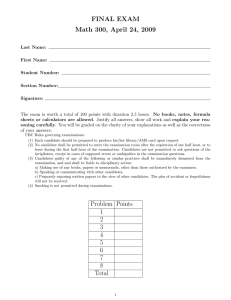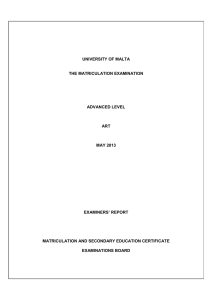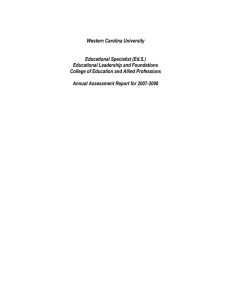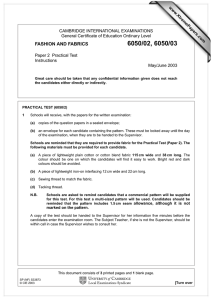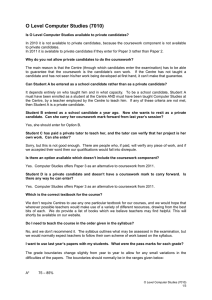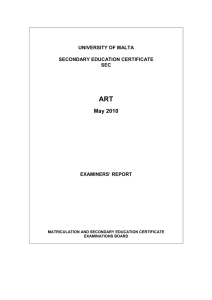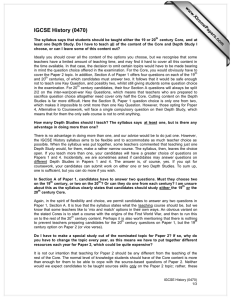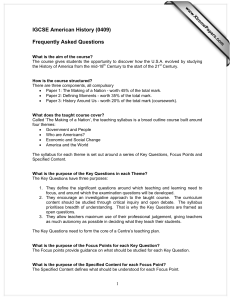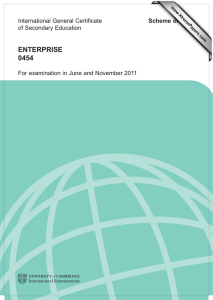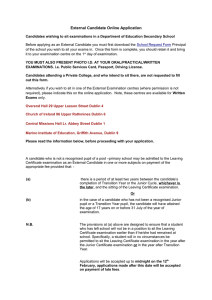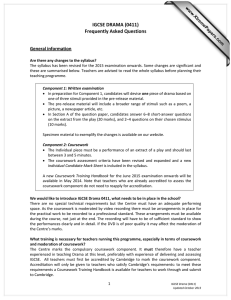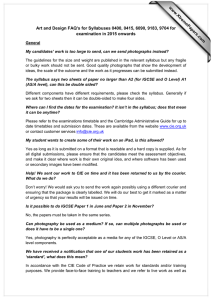Western Carolina University
advertisement
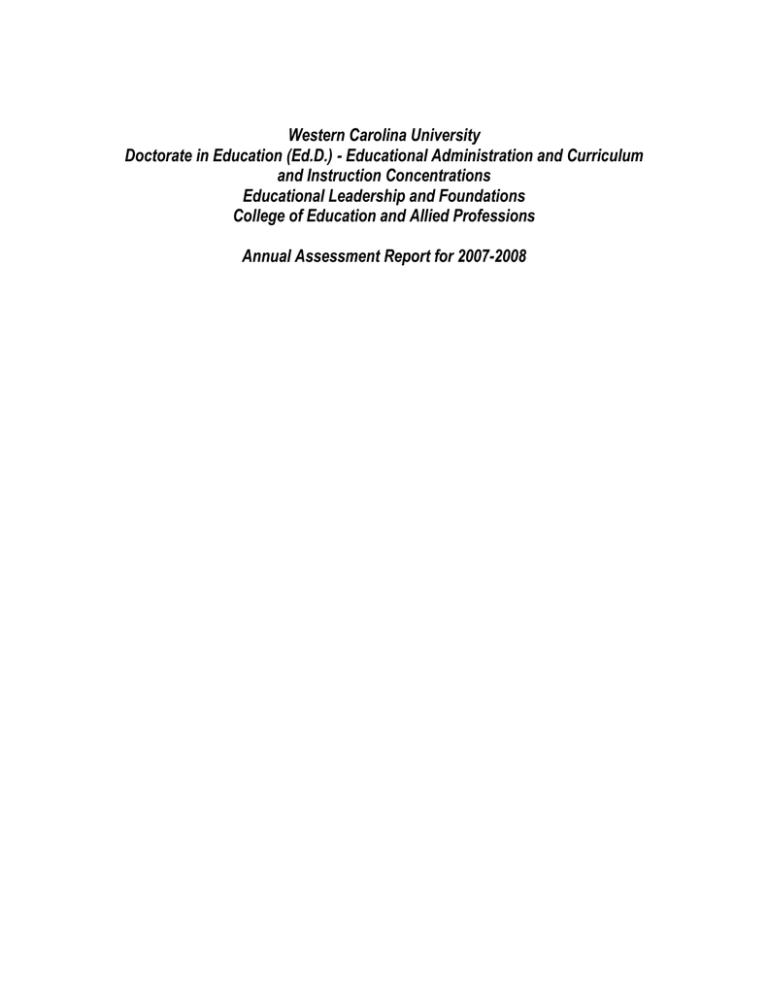
Western Carolina University Doctorate in Education (Ed.D.) - Educational Administration and Curriculum and Instruction Concentrations Educational Leadership and Foundations College of Education and Allied Professions Annual Assessment Report for 2007-2008 Primary Contact Name/Info: Dr. Sandra Tonnsen, Associate Professor Tonnsen@email.wcu.edu . Department Mission Statement: The mission of the department rests on the following two principles: personal and professional integrity and respect for the worth of the individual. These principles guide all our actions and interactions. Our mission has three emphases: · Creating instructional environments that contribute to students meeting their personal and professional learning goals. · Extending our teaching mission beyond the immediate classroom environment to include service to educational and education-related agencies. · Ensuring—through research into discipline-related topics, through creating learning environments, and through the provision of professional service—that each faculty member remain a learner. Statement on Alignment of Program Mission w/ University and College Mission: The professional education program at Western Carolina University fulfills its mission by creating and nourishing a community of learners guided by knowledge, values, and experiences. The guiding principles of this community include the belief that the best educational decisions are made after adequate reflection and with careful consideration of the interests, experiences, and welfare of the persons affected by the decisions; appreciation of and respect for diversity; and the fostering of the responsible use of technology. Candidates in the Ed.D. program concentration explore the role of the educational leader in creating learning communities in schools. They experience such communities through their coursework and internships. The knowledge, values and experiences they explore are consistent with the North Carolina Standards for School Leaders, the Interstate School Leaders Licensure Consortium Standards, and the National Policy Board Standards for Educational Leadership. In coursework, candidates reflect on their practice through journals and responses to their internship experiences. They explore the needs of diverse learners through their readings, research and internships. They demonstrate the responsible use of technology throughout their programs of study. Program Goals/Objectives: The mission of the Ed.D. program is to “prepare individuals to become senior level educational leaders who can provide exemplary leadership in their communities, resulting in improved learning for students, staff, and the community” (Ed.D. in Educational Leadership Student Handbook, 20056, p. 3). Three broad goals guide the programs to prepare the candidate to >build the knowledge, skills, and attitudes that sustain relationships which encourage stakeholders to contribute to effective decision making, >challenge their assumptions regarding educational organizations through explicit examination of diverse perspectives, and >use technology effectively and ethically to improve learning Student Learning Outcome(s) Assessed in 2007-08 Method(s) of Assessment Results of Assessment Implementation Plan Students will be competent in the NC Standards for School Leaders in the NC Standards for School Leaders School Leaders Students will be competent Course requirements A review of courses for in the NC Standards for which include research NCDPI/NCATE School Leaders papers, examinations, revealed that projects, a written standards were being comprehensive addressed in the examination, a portfolio, coursework for the and a dissertation Ed.D. All candidates who took the comprehensive exams in 2007 were successful (none took them the spring of 2008) although five had to rewrite a portion and two passed via the administration of an oral examination. Students in EDL 883 and 884 completed portfolios to demonstrate their experience with and competence in the new standards. Those seeking superintendent certification successfully presented a cumulative portfolio. Students who defended dissertations in 2007-8 were successful. Discussions within the ELF faculty will continue as we re-vision the Ed.D. Questions center around purpose, recruitment, delivery, content and its alignment, and student support. Faculty will also work on the revised comprehensive examination to implement it with the 2008 cohort (Cohort 13). Continued discussions are in place to revisit the research sequence so that students are better prepared to write their dissertations. Assessment of the impact of the new course in scholarly writing and reading required of new doctoral candidates will take place.
